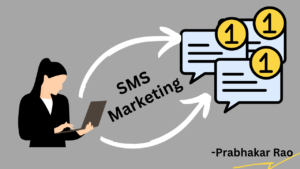Introduction
In the digital age, careers in website development(Website Developer) and web content writing (Web Content Writer) are in high demand. These roles require a unique blend of technical skills, creativity, and strategic thinking. Whether you’re aiming to become a website developer or a web content writer, preparing for these jobs involves a structured approach. This guide will walk you through the essential steps to enhance your skills, build a portfolio, and secure your dream job.
Table of Contents
Step 1: Enhancing Your Skills
Website Developer
- Learn the Basics of Web Development:
- HTML & CSS: Start with the fundamentals. HTML (HyperText Markup Language) and CSS (Cascading Style Sheets) form the backbone of web development.
- JavaScript: Gain proficiency in JavaScript to create interactive web elements.
- Master Front-End Frameworks:
- React.js: This popular library allows you to build dynamic user interfaces.
- Angular.js or Vue.js: These frameworks provide robust solutions for developing complex applications.
- Dive into Back-End Development:
- Node.js: Learn server-side programming with Node.js.
- Databases: Understand SQL and NoSQL databases like MongoDB.
- Stay Updated with the Latest Technologies:
- Regularly update your knowledge with the latest trends and tools in web development.
Web Content Writer
- Develop Strong Writing Skills:
- Grammar & Style: Ensure your writing is grammatically correct and stylistically engaging.
- SEO Writing: Learn the principles of Search Engine Optimization to write content that ranks well on search engines.
- Understand Different Types of Content:
- Blog Posts: Write informative and engaging blog articles.
- Website Copy: Create compelling copy for website pages.
- Social Media Content: Tailor your writing to fit different social media platforms.
- Master Content Management Systems (CMS):
- WordPress: Get comfortable with WordPress, the most popular CMS.
- Other CMSs: Familiarize yourself with alternatives like Joomla, Drupal, or Squarespace.
- Learn Content Strategy:
- Understand how to develop and implement a content strategy to meet business goals.
Step 2: Work on Projects

Website Developer
- Build Personal Projects:
- Create your own websites or applications to showcase your skills.
- Experiment with different technologies and frameworks.
- Contribute to Open Source Projects:
- Join open-source communities and contribute to projects. This provides real-world experience and networking opportunities.
- Freelance Projects:
- Take on freelance projects to gain practical experience and build a portfolio.
Web Content Writer
- Start a Blog:
- Write regularly on topics you are passionate about. This demonstrates your writing ability and consistency.
- Freelance Writing:
- Take on freelance writing gigs to build a diverse portfolio.
- Guest Posts:
- Write guest posts for established blogs and websites to gain exposure and credibility.
Step 3: Building Your Portfolio
Website Developer

- Create a Personal Website:
- Showcase your projects, skills, and experience.
- Include a blog to share your knowledge and insights.
- GitHub Profile:
- Upload your code to GitHub. This is a crucial platform for developers to share and collaborate on projects.
- LinkedIn Profile:
- Keep your LinkedIn profile updated with your latest projects and achievements.
Web Content Writer

- Online Portfolio:
- Use platforms like Contently, Journo Portfolio, or your own website to display your work.
- Published Work:
- Include links to your published articles, blog posts, and guest posts.
- LinkedIn Profile:
- Regularly update your LinkedIn profile with your latest work and skills.
Step 4: Applying for Jobs
Website Developer
- Research Potential Employers:
- Identify companies that align with your skills and interests.
- Follow these companies on LinkedIn and other social media platforms.
- Tailor Your Resume and Cover Letter:
- Customize your resume and cover letter for each application, highlighting relevant experience and skills.
- Network:
- Attend industry events, webinars, and meetups to connect with professionals in your field.
- Apply Strategically:
- Use job portals like LinkedIn, Glassdoor, and Indeed to find opportunities.
- Apply directly on company websites.
Web Content Writer
- Identify Your Niche:
- Focus on industries or topics you are passionate about and have expertise in.
- Tailor Your Resume and Cover Letter:
- Highlight your writing experience, SEO knowledge, and content strategy skills.
- Network:
- Join writing communities and attend content marketing conferences.
- Apply Strategically:
- Use job portals and freelance platforms to find writing opportunities.
- Apply directly to content agencies and companies.
Conclusion
Preparing for a career as a website developer or web content writer requires dedication, continuous learning, and practical experience. By enhancing your skills, working on projects, building a robust portfolio, and strategically applying for jobs, you can successfully secure a position in these exciting fields. Stay committed to your goals, and remember that persistence and passion are key to achieving success.
Call to Action
Ready to embark on your journey? Start enhancing your skills today, build your portfolio, and step confidently into the world of website development or web content writing. Good luck!
For more tips and insights on career development and digital skills, follow me on LinkedIn and stay updated with the latest blog posts.




